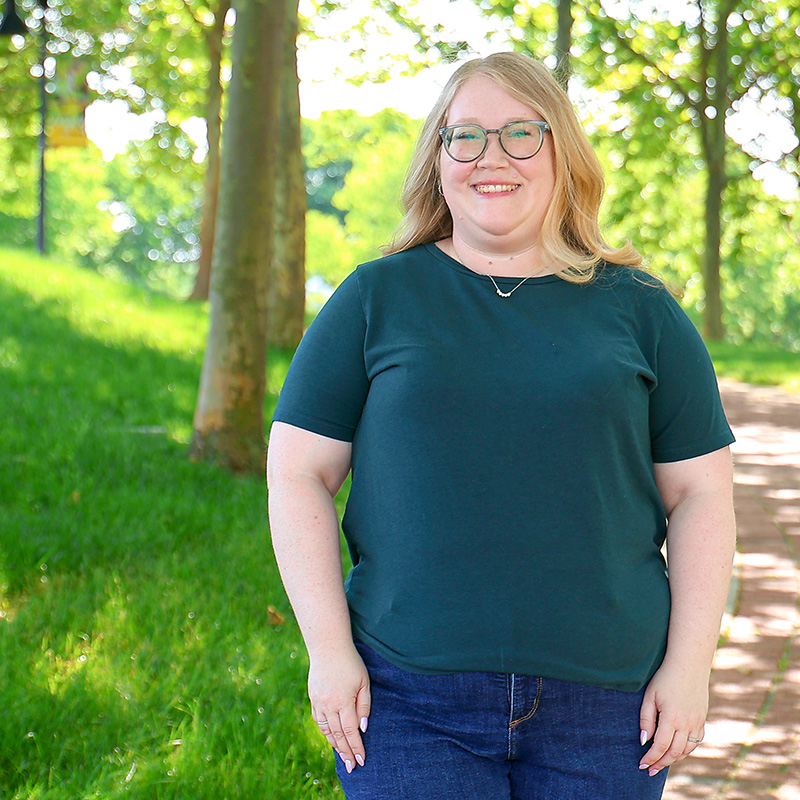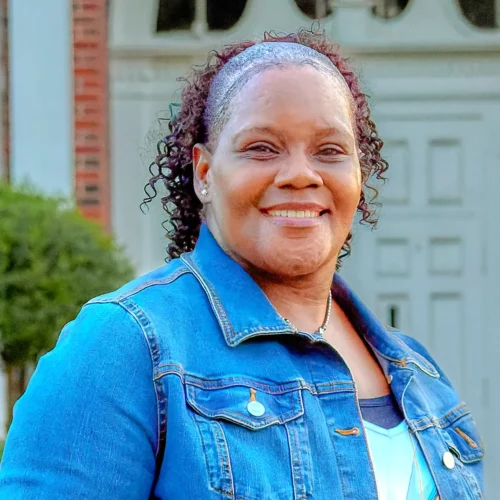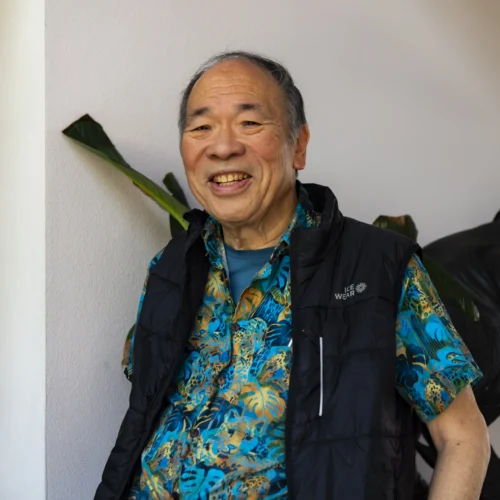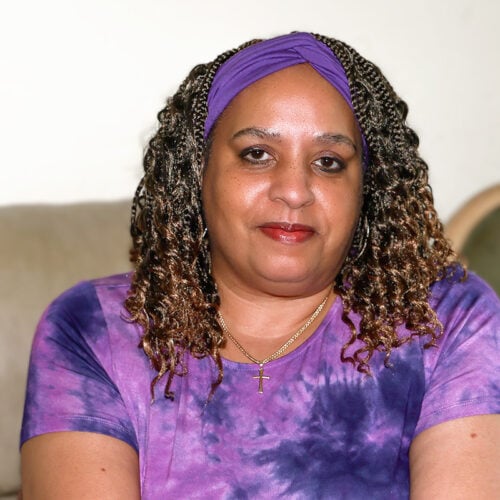Meet Katherine
When Katherine started graduate school two years ago, she knew that managing work, marriage, and school would be difficult. But she had no idea she would also be recovering from a stroke and subsequent brain surgery.
“Pain came out of nowhere,” Katherine says. “I was at work one day, and all of a sudden, I went from being fine to having the worst headache of my entire life.” She thought she was just having a bad migraine.
Her husband took her to the emergency room and things escalated quickly. “It went from zero to a thousand extremely fast,” Katherine says. “It was really, really scary.” In the emergency room, doctors told her she was having a brain bleed. Katherine was taken by a life flight helicopter to a nearby hospital for treatment, where she was introduced to Kandu as she began her recovery.
A flexible program for stroke survivors
When stroke survivors leave the hospital, they often have a lot to coordinate—from follow-up appointments to various therapies. Katherine was thankful she could participate in Kandu’s program virtually and that it was adaptable to her needs. “It was one of many things that was set up upon my discharge, but it was the one that I could do from my house, which meant a lot when I couldn’t drive, and it was winter.”
“Kandu was really flexible. I could do what I had the ability, energy, and stamina to do at any given time, which was really, really helpful,” she says. “At the very beginning, I was incredibly fatigued and felt very tired.” Katherine found the information in the Kandu app valuable, so she would do one thing at a time and take a break. Later, as her stamina improved, she started reading and participating more.
Katherine connected with her Kandu Navigator right away. “My navigator, Melanie, was so positive and encouraging, and she was willing to talk through whatever I was going through at the time,” she says.
Access to someone like Melanie, who had reliable information about stroke and recovery, was invaluable to Katherine. “I’m a librarian, so I’m the absolute worst patient in the world because I will look up everything before I even leave a doctor’s appointment,” she says. “It was useful to have someone with reliable information to stop me from going down a rabbit hole and trying to look up everything myself.”
Finding a unique community of survivors
Because of her age, Katherine feels that her recovery could have been isolating. “I’m a relatively young person who had a stroke,” says Katherine. “If I hadn’t been a part of Kandu, I never would have met someone else who had a stroke. I’m way too young to be in any of the local stroke survivor groups.”
Support groups at Kandu are held virtually and led by Kandu Ambassadors, who are all stroke survivors. “I was able to talk through some of my sensory issues and some of my vision problems,” she says. Through these conversations Katherine was able to find strategies that helped her in her recovery.
During follow-up visits with her care team, Katherine learned that her brain bleed was caused by an arteriovenous malformation (AVM). “People who have AVMs are incredibly, incredibly rare,” she says. “The chances of me ever meeting another survivor were pretty rare.” Through her support group, she was able to meet other survivors who had similar conditions.
A few months after her stroke, Katherine had brain surgery to address the AVM and was once again thankful for her community at Kandu. “It was so valuable to me to know that there were people who knew what I was going through,” she says. “It really improved the quality of my life while I was preparing for the surgery and then recovering afterwards.”
“The part of the Kandu program that was most impactful for me was the relationships I’ve built with my navigator and other stroke survivors. Being a stroke survivor can be lonely, and so can being in graduate school. The people at Kandu are always in my corner!”
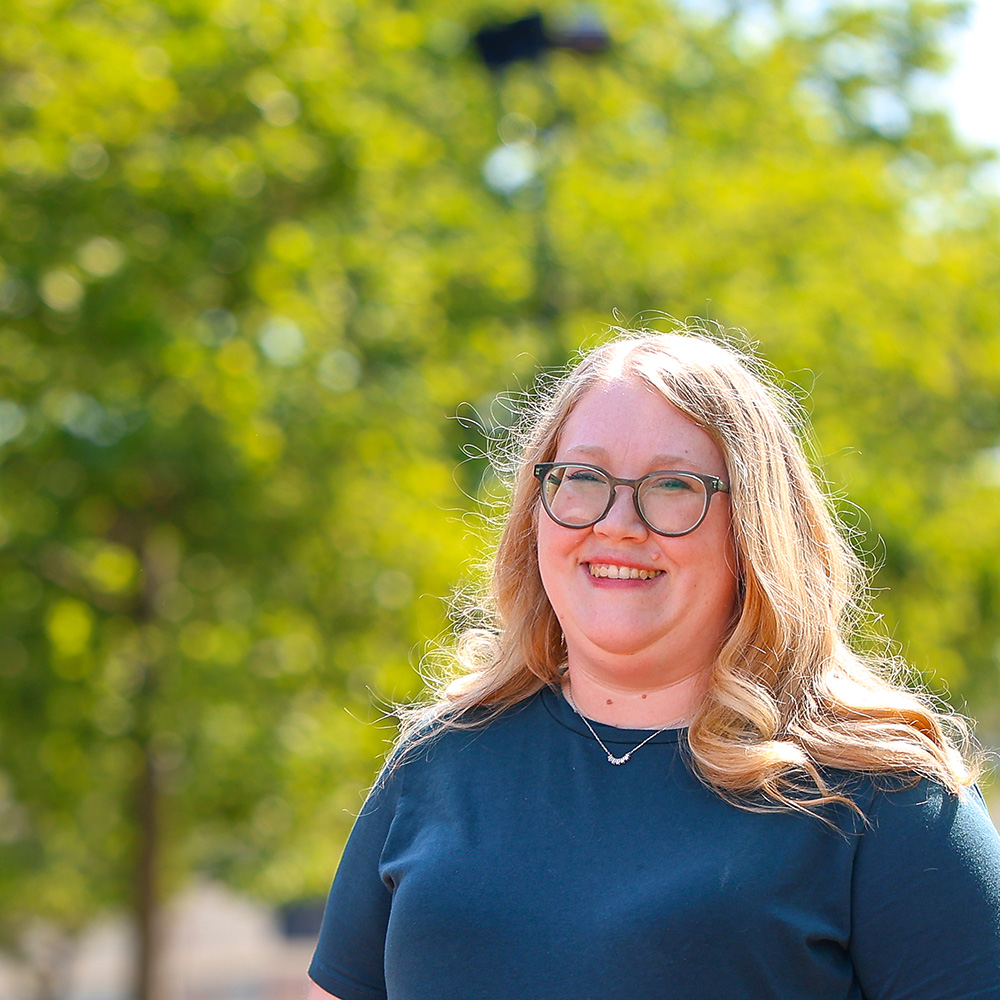
“The part of the Kandu program that was most impactful for me was the relationships I’ve built with my navigator and other stroke survivors. Being a stroke survivor can be lonely, and so can being in graduate school. The people at Kandu are always in my corner!”
Staying on track and reaching her goals
Katherine credits the community she found through Kandu’s program with helping her stay on track through graduate school. One of the biggest remaining effects of Katherine’s stroke has been persistent, lingering fatigue, which made managing school and work difficult.
“I had many conversations, both at the group and on the connect board, about effectively managing my fatigue so that I could function,” she says. “I don’t know if I would have found some of the valuable strategies to keep me on track to return to work and school without the help of people I met through Kandu.”
Katherine graduated from her master’s degree program this spring and looks forward to settling into a new job as a reference librarian this summer.
“Considering that I had a stroke halfway through the first semester and brain surgery two-thirds through the second semester, it’s crazy to me that I managed to stay on track through all of this,” she says. “It feels like such a big accomplishment.”
“I’m proud of all I’ve done, but I wouldn’t have been able to do it without Kandu’s support.”

